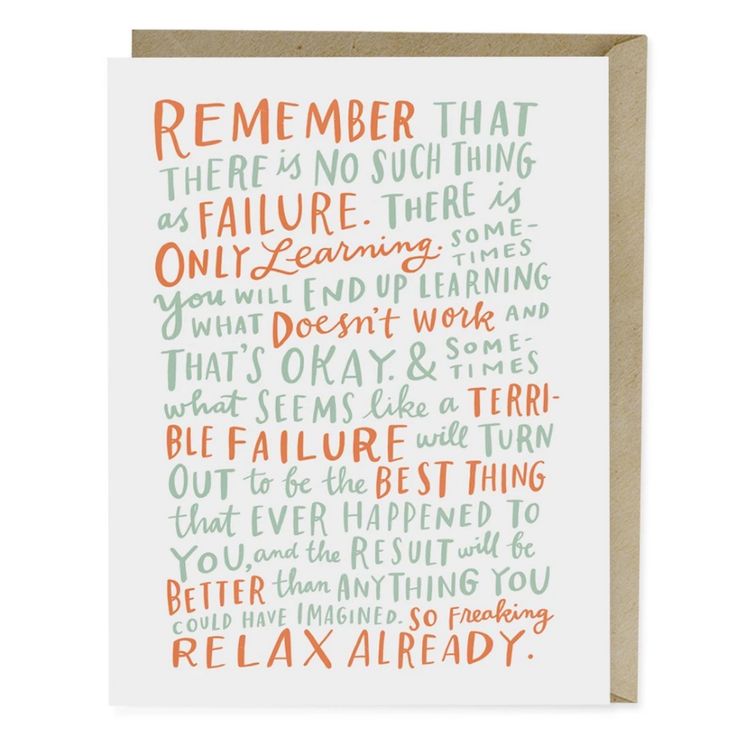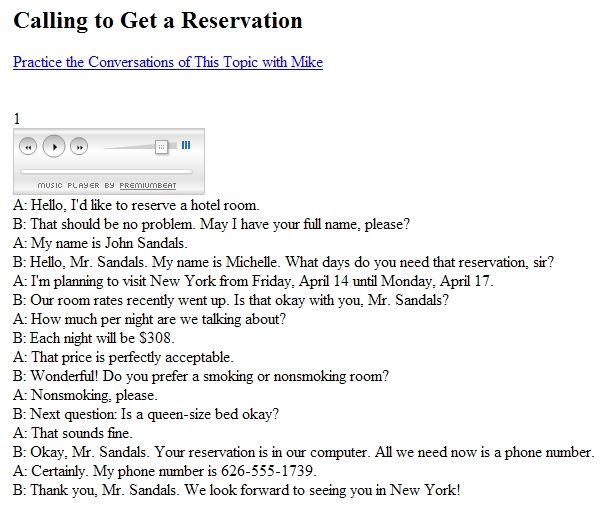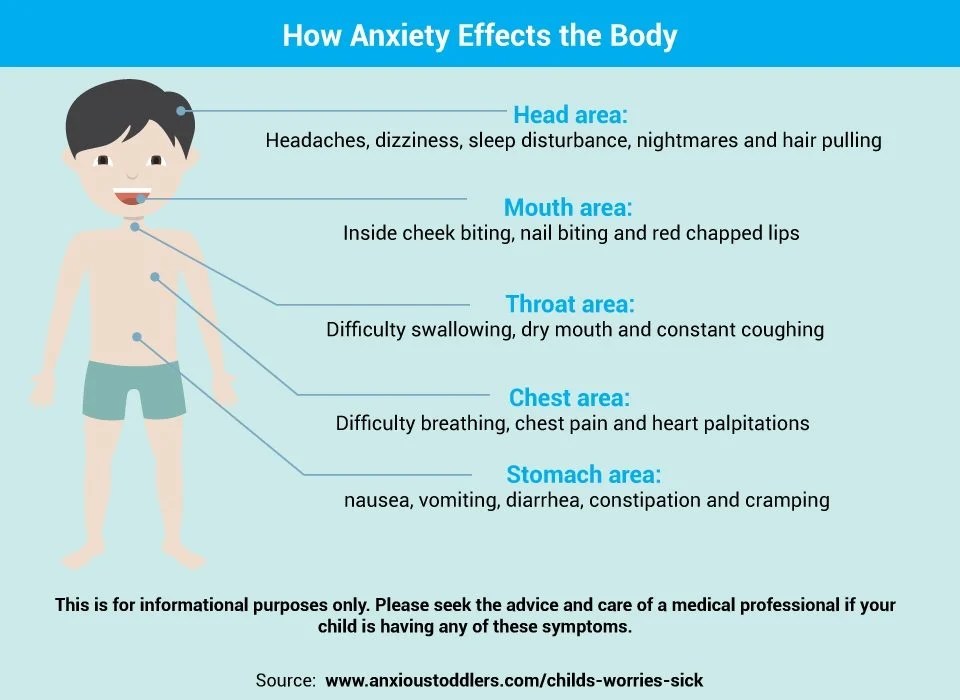Feeling like a failure at work
“I feel like a failure” - what to do if you feel like this
Do you find yourself constantly feeling like a failure? Your friends have better jobs, houses or partners than you, while you languish at the bottom of the career path, housing ladder or dating pool. Maybe you’ve had a string of unfulfilling jobs, while you’ve watched your peers’ high-flying careers take off. You can’t seem to get anything right at work – and you feel you’ve failed as a parent too. You just can’t get a break. What’s worse is you feel you’ve never really succeeded. Sometimes you feel that you’ve just failed at life.
We can all feel like a failure from time to time. But if you always feel like this, you may be stuck in a negative, repeating, self-fulfilling pattern called the ‘failure lifetrap’ or ‘failure schema’. The good news is that you can break out of it. Here’s what it is – and what you can do about it.
Reasons for feeling like a failureIf we feel like a failure, it’s usually in relation to other people. You might feel that other people your age have accomplished more in life, that you’re less competent than others in your field or that you’re not as intelligent as the people you mix with. You might, for example, feel like a failure when you scroll through social media and compare your life to the better, more glamorous lives other people seem to be leading.
Or you might feel a failure if you’ve been rejected by someone, or if you tried something new – but it didn’t work out. Your feelings of failure relate more to your perception of the failure and what it means to you – rather than the failure itself.
We can even be quite successful – yet still feel a failure. You may feel that other people believe you to be more intelligent or competent than you really are. You think you’ve somehow deceived everyone into thinking you’re better than you are, and worry about being ‘found out’. This is often called ‘imposter syndrome’.
Your failures might be real or imagined. Either way, your inner world is the same. You feel like a failure – whether or not you outwardly appear to be a success.
Either way, your inner world is the same. You feel like a failure – whether or not you outwardly appear to be a success.
The failure lifetrap, or failure schema, is usually rooted in our past. It’s down to how we think about failure, based on our childhood experiences – and how we behave as a result. It can lead to persistent, self-sabotaging – and self-fulfilling – patterns of thought and behaviour.
If you have the failure lifetrap, you probably suffer from an inferiority complex. You see both yourself and your achievements as never meeting the standards of your peers. This can lead to anxiety and depression.
Think about your childhood. You may have been criticised, humiliated, compared or discouraged by your family or peer group. Do any of the following sound familiar to you?
- You had a parent who was very critical of you, always putting you down.
- One or both of your parents were high achievers.
 You believed you could never live up to them.
You believed you could never live up to them. - You had siblings you were unfavourably compared to. You felt you could never measure up to them.
- One or both of your parents just didn’t care about your success. Or they may even have felt threatened by it, or been competitive with you.
- You weren’t as good as your peers at school in some things – either academically or on the sports field.
- You felt inferior to your schoolmates because your family was different in some way.
- You missed out on some schooling, perhaps because of illness, and fell behind your peers.
- Your parents didn’t teach you self-discipline or responsibility. So you didn’t do your homework – which led to failure over time.
In any of these situations, you might simply have stopped trying to achieve – and therefore avoided putting yourself in situations where you could fail. Feelings of failure can manifest themselves in a variety of situations. Two common ones are feeling like a failure at work, and feeling like a failure as a parent.
We all make mistakes, and receive criticism and feedback at work. It’s how we learn and develop. But do you regularly feel like a failure at work? Do you constantly miss deadlines, mess things up or just never seem to progress? Do you never seek promotion – or even take one when it’s offered to you? Or is your job below your abilities? There may be two reasons for this:
- Avoidance. You may have a tendency to run away from the possibility of failure – which undermines your ability to do, or get, a good job. You don’t put yourself forward, so you never progress.
- Imposter syndrome. You’re actually doing quite well at work – but nonetheless feel a failure because you feel a fraud. You might even twist your view of events to reinforce your view of yourself as a failure, focusing on the negatives and playing down the positives.
While imposter syndrome can be tackled by re-calibrating how you think about yourself, if the problem is avoidance – which is more common – you’ll need to take steps to change your behaviour too. Otherwise your expectations of failure at work will become a self-fulfilling prophecy.
Otherwise your expectations of failure at work will become a self-fulfilling prophecy.
Do you constantly get into arguments with your kids? Or are they not doing so well at school, or in other areas of their lives? And do you always blame yourself for their behaviour, failings or feelings?
Most parents feel like a failure some of the time. Actually, a lot of the time. Parenting is hard. There’s a saying that “you’re only ever as happy as your unhappiest child”. But no parent can protect their child from life’s difficulties – no matter how hard you try. So give yourself a break, and try not to blame yourself.
There’s no parenting school. Most people raise children in a way modelled to them by their own parents. So it pays to think about how you were raised, and any unhelpful patterns you may be repeating. Not just in your parenting skills – but in how you think about success and failure as a parent.
Every parent makes mistakes. If you have very high – perhaps unrealistic – expectations of yourself as a parent, you might be setting yourself up for failure.
How to overcome the failure lifetrapIf your failures are imagined, the solution is to change your thinking. If, however, they are real, you’ll need to work on your behaviour too, to create opportunities for success. So the first step is to ask yourself whether your feeling of failure is accurate or distorted.
Get in touch with your ‘inner child’, the one who felt like a failure – and understand that you were treated unfairly. Then become aware of your strengths. Make a list. Everyone has talents, skills and abilities. These may be things that you’re not currently pursuing, perhaps because you were discouraged from doing so in the past.
This can help you overcome imposter syndrome. But most people need to change their behaviour too. This is because we usually respond to the failure lifetrap by choosing the path of escape: a tendency to avoid the possibility of failure. Avoidance, rather than any innate deficiency, is, paradoxically, what can lead to failure. It becomes a reinforcing feedback loop of self-sabotage.
Avoidance, rather than any innate deficiency, is, paradoxically, what can lead to failure. It becomes a reinforcing feedback loop of self-sabotage.
The solution is to take steps to overcome your avoidance. Here are some things you can do:
- Start facing challenges instead of running away. Gradually expose yourself to situations where you can succeed, to break the pattern and reinforce success.
- Connect with your goals, aspirations and talents. Think about what you would do if you knew you couldn’t fail. This could involve a career change.
- Make a plan. Take one small step today to move you closer to your goal.
- Risk failure. It’s the only way to succeed. Failure is not the opposite of success: it’s part of success.
- Speak to someone. If the failure lifetrap is something that you’re struggling with and it’s creating obstacles in your life, Schema Therapy can be very helpful.
 Find out how you can get started with My Online Therapy.
Find out how you can get started with My Online Therapy. - Try our Self-care courses. To learn more about Schema Therapy and how you can overcome the failure lifetrap, try our Self-care audio courses, which include a helpful introduction to Schema Therapy with lots of therapeutic skills and exercises.
Above all, give yourself a chance to succeed. Samuel Beckett’s most famous quotation is probably: “Ever tried. Ever failed. No matter. Try again. Fail again. Fail better.” If you’re not prepared to fail, you’ll never put yourself in situations where you can succeed. So you’ll conclude that you were right all along.
Or think of Thomas Edison, inventor of the lightbulb. He said: “I have not failed. I’ve just found 10,000 ways that won’t work.” Every failure is a step to success.
How to Cope with Feeling Like a Failure at Work
Sometimes we all feel like failures at work. Over the past week, I heard or experienced myself all of the following and more:
I stink because I do not have enough expertise in my field
I stink because I have lost connection with my team
I stink because I could not recognize that my team member needed my support
I stink because I cannot meet my deadline
I stink because I cannot manage all my work
I stink because I cannot learn fast enough
I stink because I have no freaking idea what I am doing
No matter how good we are at our jobs, there are moments when we cannot perform the way we or others expect us to. And if we are dedicated and engaged with what we do, this may provoke strong emotions and shake us up considerably. And while I have already discussed how to address our failures with individuals and teams, today I would like to talk about our own experience of defeat and manage it.
And if we are dedicated and engaged with what we do, this may provoke strong emotions and shake us up considerably. And while I have already discussed how to address our failures with individuals and teams, today I would like to talk about our own experience of defeat and manage it.
Take a Step Back
Failures can be significant or small, real, or perceived. Some we take in stride, but others may connect with past experience or our existing insecurities and grow to extraordinary proportions in our minds. They can overshadow all the good things that we are doing and all our successes and achievements.
In these situations, it helps to take one or more steps back until we come out from underneath our failure’s gloom and can see the full picture. More often than not, this different vantage point will show that apart from the shadows of failure, your work landscape also displays the peaks of success, the valleys of cooperation and lots and lots of fields of opportunity. This perspective will reveal that while we may have failed in one thing, we are not in fact A failure.
Talk About Feeling Like A Failure At Work (and hear what the others tell you)
At times, the cloud of our perception of failure is so big that no matter how many steps back we take, we cannot come out from underneath it. The good news is that there are others around us whose vision is not so obscured and who can help us see more clearly.
Many people find it hard to share emotions in the workplace (or anywhere else for that matter) for fear of seeming vulnerable or unprofessional. If you have already read any of my other posts, you will know that for me vulnerability is a strength and not a weakness. Therefore, I have no issue with sharing that I feel stupid, inadequate or unsuccessful. The part I find difficult, though, is hearing what the other party is telling me in response.
At the moment, when feelings of insecurity and failure shroud me, any attempts at encouragement and shifting my focus to a more balanced view of my overall performance may fall short. But some of it inevitably sticks and over the next hours or days, it helps shift my viewpoint and get to a more stable emotional state faster.
Ask for Help
We are not alone in the workplace. We have peers and managers and teams that can help bring a different perspective or lend a hand in managing the task or meeting that deadline.
I have observed that frequently the most talented professionals have the most challenging time asking for support. It is sometimes due to a fear of showing vulnerability, but often they are just so used to being able to handle anything on their own that it does not even occur to them that they can reach out for help.
But this is not a winning strategy in the long run. You can be the most outstanding expert in your field or the best leader that has ever walked the corporate hallways, but inevitably a moment will come when you get stuck and that “I stink” feeling comes sailing in. So put a post-it note on your monitor or reminder on your calendar that does not let you forget this ultimate mantra for survival in the corporate world: “I can ask for help.”
Reappraise
Cognitive reappraisal refers to our ability to change the way we perceive a situation. In his book “Your Brain at Work”, David Rock provides strategies to do that.
In his book “Your Brain at Work”, David Rock provides strategies to do that.
According to him we can:
- reinterpret the event by receiving or searching for additional information, which brings new aspects to the picture and may change our emotions.
- normalize a new or unexpected situation, bringing down the levels of stress and anxiety.
- re-evaluate the importance of a given event or task.
- reposition and try to view the situation from another point of view.
To be honest, I have struggled for years with the concept of reappraisal. Even though David Rock’s book provides ample supporting evidence from neuroscientific research, the whole idea still seemed iffy to me. Emotions are incredibly important for me and my goal has always been to learn how to stay with my negative emotions, analyze them, get to the root cause and work on resolving that. Making conscious efforts to change my feelings seemed like cheating.
But I have to admit that reappraisal can be very effective in the workplace when you are stuck in negative emotion and you don’t have the time and mental bandwidth to thoroughly examine and endure the emotion. It provides tools to alter the way you think about the situation and pull you away from feeling like a failure at work.
It provides tools to alter the way you think about the situation and pull you away from feeling like a failure at work.
When You Start Feeling Like A Failure At Work, Switch Direction
I have a weekly plan for preparing my blog posts – I write the first draft on Tuesday night, do the first edit on Thursdays, work on formatting and visuals over the weekend and publish at the beginning of the following week. It gives me structure and a sense of accomplishment for reaching each of the minute milestones.
Last week though, was tough. I had several thirteen-hour workdays and a few leadership fails that really brought me down. I had the blog post outline ready right on schedule and I had the whole thing in my head, but I just could not get myself to sit down and write it.
With each passing day, I was more and more disappointed with myself. In the end, I managed to start, wrote half of the post and got completely stuck. I felt stupid and useless. It was a post I had been planning for a month and I simply could not make it happen.
After a bit of banging my head against the nearest wall and a fretful night’s sleep, I woke up and looked over the past few days. I realized that I had been so thoroughly focused on the timeline I had devised myself and the topic I had planned that I had completely lost sight of the whole reason I am doing this – to share stories that are important to me and have fun along the way.
With this new perspective, I switched the post’s topic to something more relevant for me at the moment and finished the whole thing in two hours.
Often we get so caught up in the way we picture things should go that we utterly forget there might be a different way we could approach the situation. In these cases, it helps if we go back to the start and remind ourselves of our goal and the end result we want to achieve. On surprisingly many occasions, we find another way to reach those results and discover that just next to the wall that we were trying fruitlessly to break down, there is a door that is just waiting for us to open it.
Accept Failure
The truth of the matter is that we sometimes do fail. But it is just as true that it is ok to fail sometimes.
We cannot be perfect in everything and that is fine. It is also fine to sometimes fail in something in which you usually excel. We all have bad days or even weeks and months.
I have found that accepting my flaws helps me overcome failures easier and makes me braver and allows me to continue learning and improving so that I don’t fail as often in the end.
Write a Blog Post About It
Or a song, or a sonnet, or a journal entry, or a list – anything that will help you take the situation and emotion out of your mind, observe it and process it.
Feelings of inadequacy plagued me both in my personal and professional life all week. Even though I employed most of the techniques described in this post, the thing that finally pulled me out was sitting down and writing it all. It also helped me see that I could have been better at asking for support and at acceptance. I also figured out that the switching direction approach I used with my writer’s block could have been useful when I felt stuck in finding a way to improve a relationship with an internal client.
I also figured out that the switching direction approach I used with my writer’s block could have been useful when I felt stuck in finding a way to improve a relationship with an internal client.
In fact, I think that in the future, I might use this article as a checklist to help me ensure that I have done all I can to support myself in situations when I feel like a failure at work. Feel free to do the same.
Failure at work? Ask yourself these five questions
Don't be ashamed of negative emotions. It is not unnatural to feel sad, upset, angry, or ashamed of failure. Do not aggravate your condition by blaming yourself for your emotions. Better answer the following questions.
Are you angry?
Anger usually indicates that someone or something prevented you from accomplishing an important goal and you could not control the situation in any way. You did not achieve something and could not do anything about it.
When a person is angry, he instinctively wants to resist the obstacle. For example, if you were hoping for a promotion and your boss is promoting someone else, your first reaction would be to fight the boss.
Do you really need to deal with the interference?
It all depends on what exactly happened. For example, if you have been sexually harassed, you need to find allies and deal with the situation.
But not all obstacles to success are worth fighting for. For example, if you failed to attract a desired client, then this could simply be because he chose another firm. He didn't do it out of malice. Or the boss could promote not you, but your colleague only because this person also had the right skills.
Photo: Unsplash
If you resist in such situations, you will show that you do not understand them. You better accept what happened. Treat the participants in the situation with respect. Who knows, they might even make you a better offer.
Don't immediately vent your anger on the culprit - give yourself a day to collect your thoughts and cool down. Sometimes you feel like sending an outraged letter, but trust me, you'd be better off if you refrained from the idea. A sharp, emotional response can very rarely affect the decision of the interlocutor.
Sometimes you feel like sending an outraged letter, but trust me, you'd be better off if you refrained from the idea. A sharp, emotional response can very rarely affect the decision of the interlocutor.
Are you disappointed?
There are times when you really want something but don't get it. And the more you wanted it, the harder it is to accept failure. In such situations, you usually feel sad or disappointed.
Don't let frustration distract you from possible job opportunities. Failure can undermine your self-confidence. Realize that you are disappointed only because you have made great progress and there was very little time left for success. Use this energy to focus on the positive changes you can make.
Are you stressed?
If you feel stressed after learning about your failure, you most likely feel that an imminent disaster is approaching you.
Photo: Unsplash
The first thing you need to figure out is whether this is true. Perhaps you have to deal with a much more serious problem - for example, your job in the company is under threat. If you can somehow solve it, do it to minimize the negative consequences.
If you can somehow solve it, do it to minimize the negative consequences.
But don't forget that stress can also be caused by constantly having negative thoughts. You may not really be in danger, but because of small setbacks, you keep thinking about your fears. In this case, you should contact a psychologist. Or try writing down everything that worries you - this method helps to reduce stress.
Are you ashamed?
Bad news at work can cause feelings of shame because you care how you look in the eyes of others. It may seem to you that colleagues can blame you for what happened and your reputation in the company will fall.
Shame hurts productivity. Because of it, you can begin to communicate less with others, which means you will be less involved in teamwork.
But in fact, in case of failure, colleagues are more likely to treat you with sympathy. Think about how you would feel about a colleague who was in the same situation as you.
Accept that you have failed and move on. Become an example for everyone of resilience in difficult situations, even if you think that you can not stand more than a day at work.
Become an example for everyone of resilience in difficult situations, even if you think that you can not stand more than a day at work.
Source.
Related content:
How to talk to a colleague who is very annoying
9 tips on how to deal with stress
How work is killing us
What is better to say at work instead of saying “no”
How to deal with failure at workAugust 23, 2016
Failure is just an opportunity to start again, but more wisely.
Henry Ford
An ideal job, where there are never any problems, stress, bad news and unpleasant conversations, probably only happens in films. Any business, no matter how beloved it may be, is associated with periodic difficulties and failures. And in fact, difficulties are normal, they say that you do not stand still and grow. But for this you need to learn to look at problems from the right angle and overcome yourself and circumstances no matter what. We have prepared some tips on how to survive troubles at work and continue moving towards your cherished goal.
We have prepared some tips on how to survive troubles at work and continue moving towards your cherished goal.
1. If failure occurs, accept it
Coping with a difficult situation is easier if you are prepared for it. Never (even if everything goes smoothly) convince yourself that you cannot be mistaken, that "failure" is a word from someone else's biography. Realize and accept the fact that anyone can run into problems or make a mistake. This will help you come to terms with reality when something actually happens.
2. Don't lose your temper
Sometimes it's very difficult to restrain yourself when everything comes at once - stress, troubles, bad mood. But no matter what the situation is and no matter how much you want to express everything that has accumulated, control yourself. It is important to save face in front of partners and employees. This will require courage and emotional strength from you, but it will allow you to get out of the situation with dignity.
Throwing out emotions on your relatives and friends is also not worth it. If you feel that your self-control is leaving you, inhale slowly, count to yourself to ten and see that the storm has subsided :) And then, to unload your head from negative thoughts, it’s better to go to boxing, swimming pool, jogging or just take a walk. Physical activity is very good at helping you relax and relieve accumulated stress.
3. Don't make hasty decisions. If you are asked to answer, ask for time to think. And then calmly weigh the pros and cons to make a decision. It is best to return to the conversation the next day, when emotions subside, and logic and common sense will prompt the right way out. Do not worry about making someone wait - colleagues will appreciate your serious approach to business, and you will definitely not let your mood get the better of you.
4. Concentrate on solving the problem
When something bad happens, sometimes even after a while we feel overwhelmed and confused. During such periods, it is very important not to dwell on your condition, but to try to focus on solving the problem. Instead of accumulating negativity inside yourself, try to look ahead and look for a way out that is in any situation. Sometimes it is completely on the surface and turns out to be childishly simple, it is enough to soberly assess the situation and believe in yourself. But it also happens that we cannot cope alone, and then do not be afraid to ask for support.
During such periods, it is very important not to dwell on your condition, but to try to focus on solving the problem. Instead of accumulating negativity inside yourself, try to look ahead and look for a way out that is in any situation. Sometimes it is completely on the surface and turns out to be childishly simple, it is enough to soberly assess the situation and believe in yourself. But it also happens that we cannot cope alone, and then do not be afraid to ask for support.
5. Ask for help. This fact seems so simple, but when we encounter problems, an unpleasant thought always appears in our heads about how we look in the eyes of relatives and friends. Remember that really close people are always ready to support you, they sincerely love you and believe in you, so don't be afraid to turn to them for advice. Those who know you well will find a way to restore your faith in yourself, cheer you up and give you strength for new achievements. Appreciate those who are close to you, and do not hesitate to ask for help from people who are ready to provide it to you.
6. Learn from the situation
Be sure to analyze what happened after a while and learn from it. This will help you understand the reasons for what happened and not repeat the mistakes. In any situation, try to find something positive and be grateful for the good that you got out of it.
And if, looking back, you realize that the problem is not as terrible as it seemed at first glance, just laugh at it. Sometimes it's better to take a little less seriousness in everyday failures and remember that there is no better helper than a sense of humor. With it, you will not lose your love for life and work and overcome the difficulties that we all inevitably face along the way.
Failure failure strife. Someone will call this word a minor nuisance, but for someone it can be the end of an entire era and the result of many years of work. Whatever happens, never give up and live with regrets. They prevent you from moving forward.














